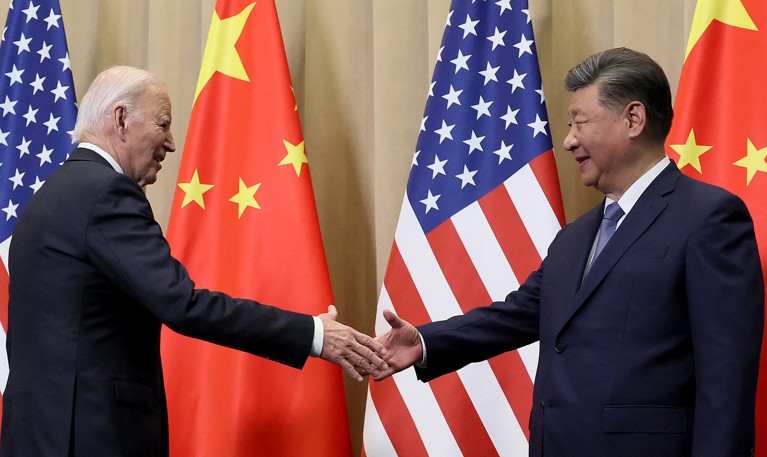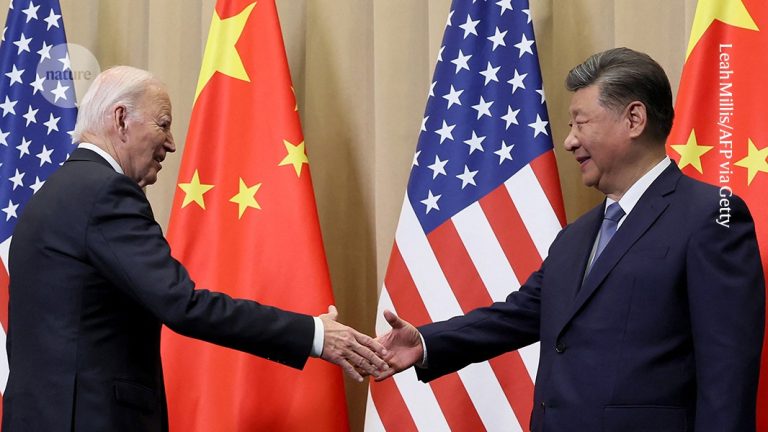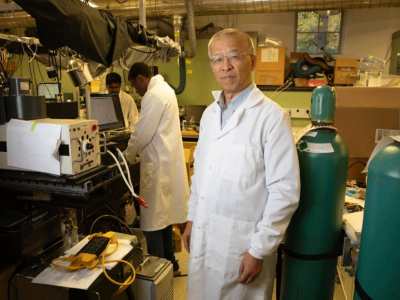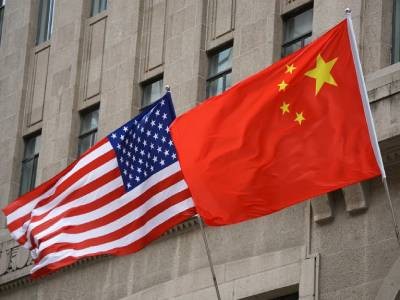
U.S. President Joe Biden (left) shakes hands with Chinese President Xi Jinping (right) during an economic summit in November.Credit: Leah Millis/AFP via Getty
The United States and China have signed a brand new five-year agreement that dictates how the countries will cooperate on scientific and technological research. The pact is narrower in scope than its predecessor, covering only collaboration on fundamental scientific projects between ministries and agencies of the two governments and excluding work on “critical and emerging technologies‘ potentially important to national security, such as artificial intelligence and semiconductors. Unlike its predecessor, the agreement contains no information on collaboration between Chinese and American universities and private companies.
Why the US border remains “a place of terror” for Chinese researchers
Experts on U.S.-China relations welcome the deal, saying it will allow scientists to pursue their projects with confidence.
“I am relieved to see this pact renewed,” says Duan Yibing, a science and policy researcher at the Chinese Academy of Sciences in Beijing, who hopes the pact will do what it is designed to do: promote collaboration in basic research between the two countries.
“It seems like they cleaned everything up and started from scratch,” says Caroline Wagner, a science, technology and international affairs specialist at Ohio State University in Columbus. This narrow approach “seems appropriate” given China’s new status as a scientific and economic power. “The United States has recognized that its relationship with China is now more symmetrical” than when the original agreement was signed 45 years ago, she said.
The deal “demonstrates a pragmatic, albeit limited, approach to maintaining scientific collaboration amid geopolitical rivalry,” says Marina Zhang, an innovation researcher who focuses on China at the University of Technology Sydney in Australia.
A modernized agreement
The original agreement was reached in 1979 to thaw diplomatic relations between China and the United States. It is normally renewed every five years, but it expired on August 27 last year in a context of growing tensions. Although both countries acknowledged that new conditions were needed in the deal, they were unable to finalize the details before the deadline. Instead, they extended the old pact and continued to negotiate.
US and China set to renew scientific cooperation agreement – despite tensions
Researchers and other specialists have warned that without the agreement, which is symbolic and provides no funding, cooperation and research programs between the two governments could fail.
A U.S. State Department official said at a Dec. 12 press briefing that the government recognized that lack of an agreement would have a chilling effect on areas of science and technology important to the United States. The new agreement is “modernized, with built-in protections,” the official said.
The State Department will now review all research projects to ensure they do not pose national security concerns before being approved. The proposals will also be reviewed by other US agencies led by the White House.
In addition to clarifying that critical and emerging technologies are not an option for collaboration, the agreement does not further limit which areas of science are equitable. But a U.S. State Department official suggested authorized projects could include research on weather, oceanography and geology, as well as data collection on flu and air quality.
The shadow of the Chinese Initiative hangs over American scientists





